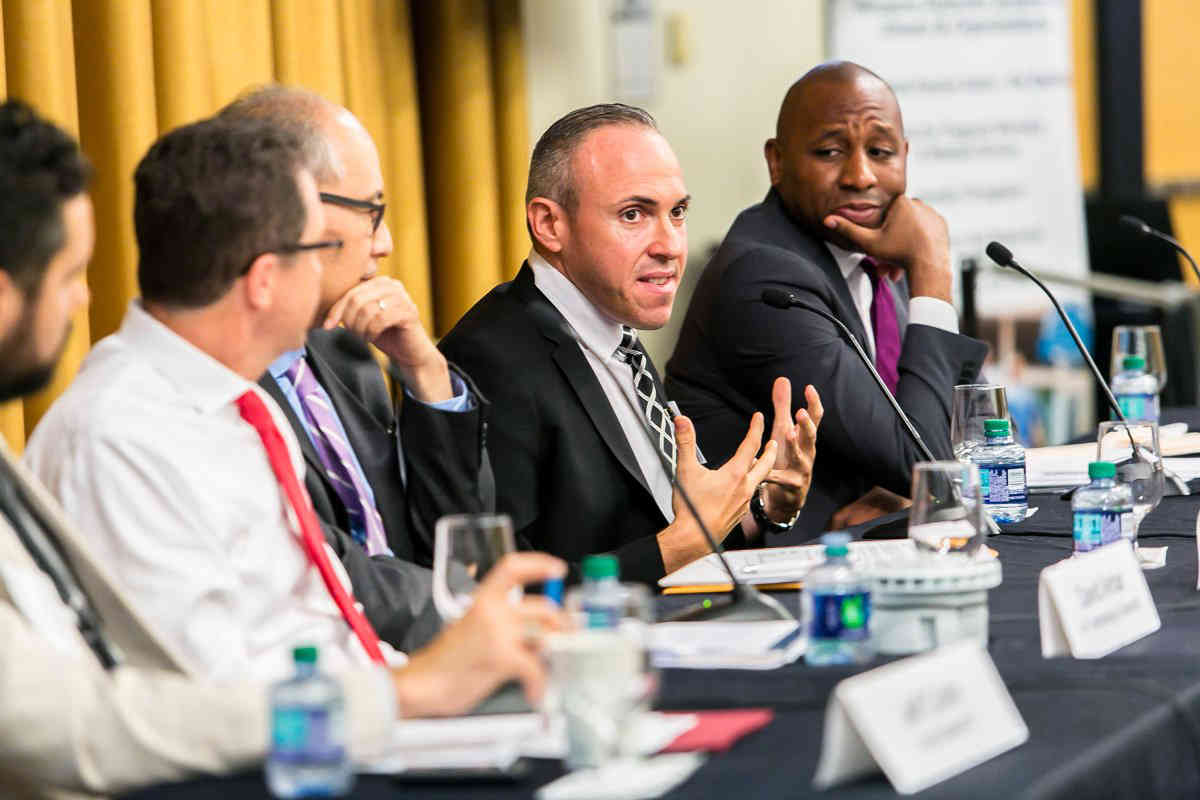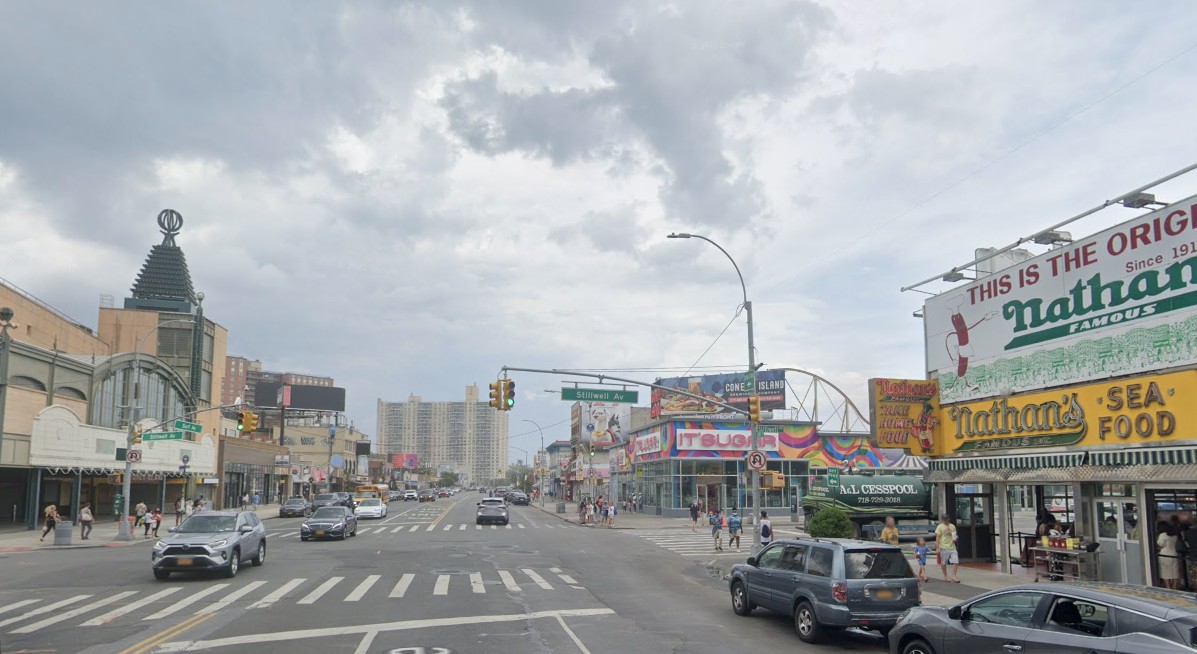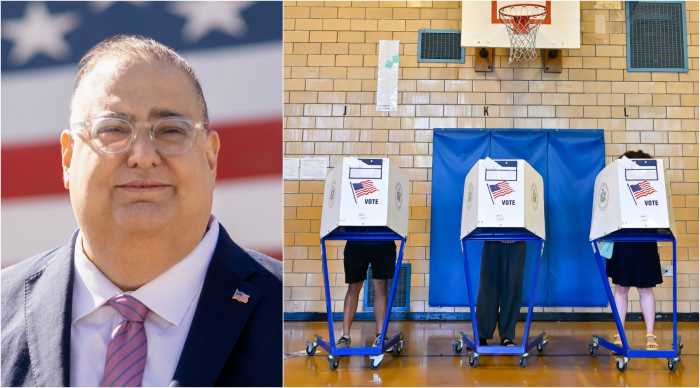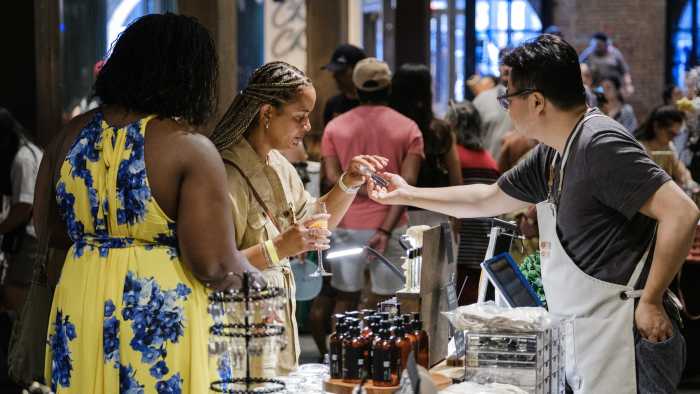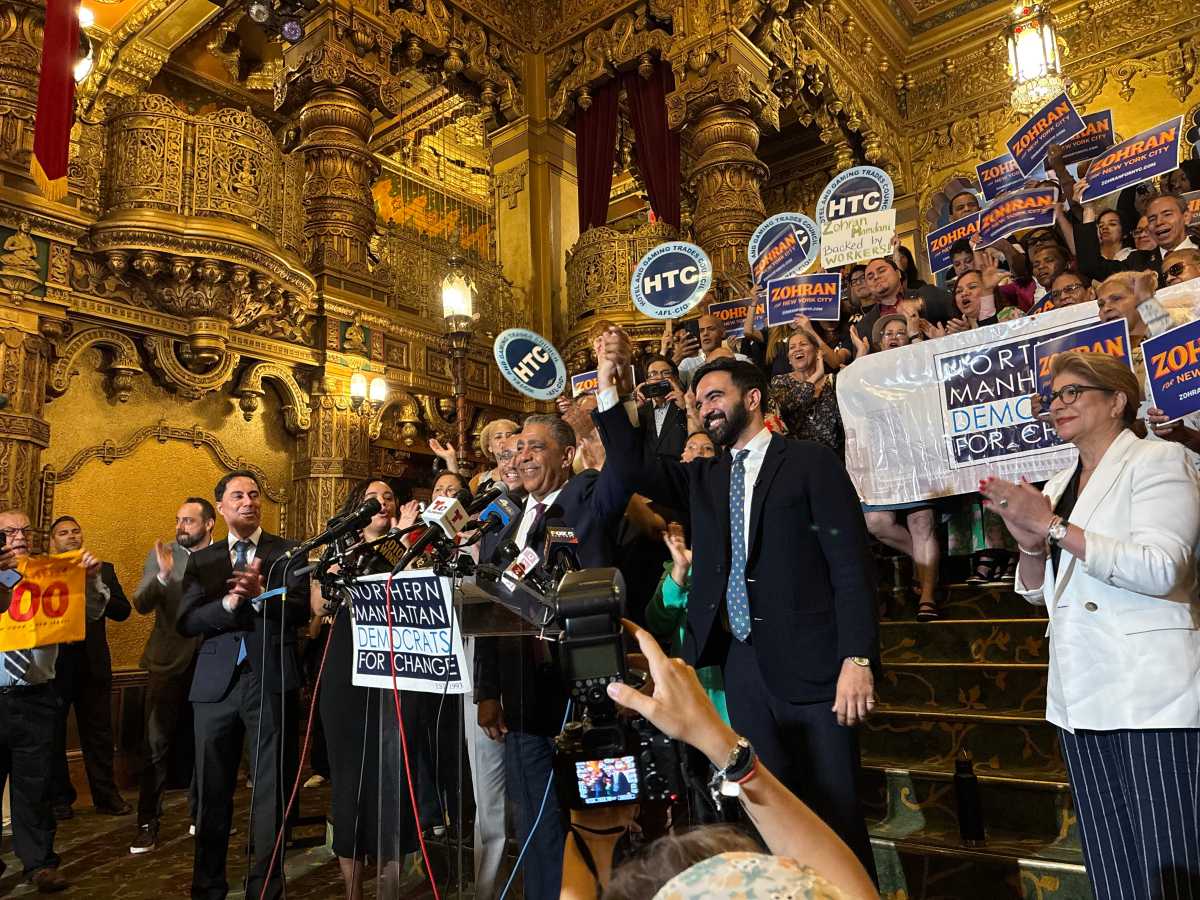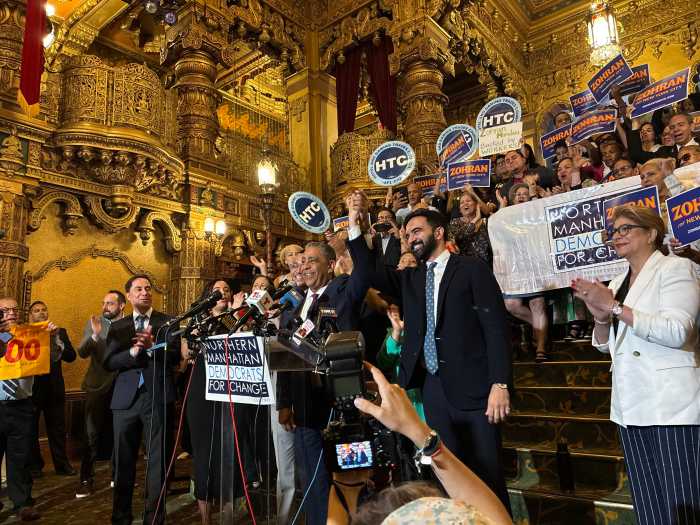Coney Island Councilman Mark Treyger slammed Mayor Bill de Blasio on Monday for failing to properly investigate lead contamination in elementary schools, claiming common spaces like cafeterias and hallways remain suspect as the first day of school looms on Sept. 5.
“It is inconceivable that lead was banned almost 60 years ago and yet still exists in our schools,” Treyger wrote in a letter to schools Chancellor Richard Carranza, signed by 33 of the 51 City Council members, including Speaker Corey Johnson, Councilman Justin Brannan (D–Bay Ridge), and Councilman Chaim Deutch (D–Sheepshead Bay).
A Department of Education study published in July found that 360 classrooms in 114 Brooklyn elementary schools have peeling paint contaminated by highly toxic lead particles, and de Blasio claimed the city would take swift action to remediate the poison — which causes developmental delay, learning difficulties, abdominal pain, and seizures, among other illnesses — by the beginning of the school year, but local pols argue that only treating classroom space is not enough.
Treyger, in a previous letter fired off to school officials on Aug. 14, asked authorities to investigate “ancillary spaces,” which include art rooms, libraries, stairwells, and cafeterias for lead particles, but de Blasio dismissed the concern at press conference the following day, claiming that it’s unlikely kids would eat paint outside the classroom.
“You don’t get lead chips in your mouth walking through a hallway or lead dust on you walking through a hallway. The real question is the classrooms,” de Blasio said. “We have to believe there’s an actual problem and specific need to go after it, but, if we find it, we will.”
Treyger went tit-for-tat with hizzoner in Monday’s follow-up letter to Carranza, condemning de Blasio’s disregard for the safety of Kings County kids.
“We believe the Administration’s reaction to this serious issue is insufficient and downplays the seriousness of lead contamination,” Treyger wrote. “Stating that contaminated secondary spaces, such as stairways, don’t pose a threat to children simply isn’t true. Responses that diminish the risk posed by lead contamination in secondary spaces are divorced from the reality of how children behave.”
The Department of Education did not comment on whether it will investigate Treyger’s concerns, but claimed that it is working to finish removing the toxic ink from inside the classrooms.
“We’re going to continue doing everything we can to keep our keep kids safe in school. We’re completing remediation in classrooms and we’re currently reviewing our policy on common spaces and will have more to say soon,” said DOE spokeswoman Miranda Barbot.


